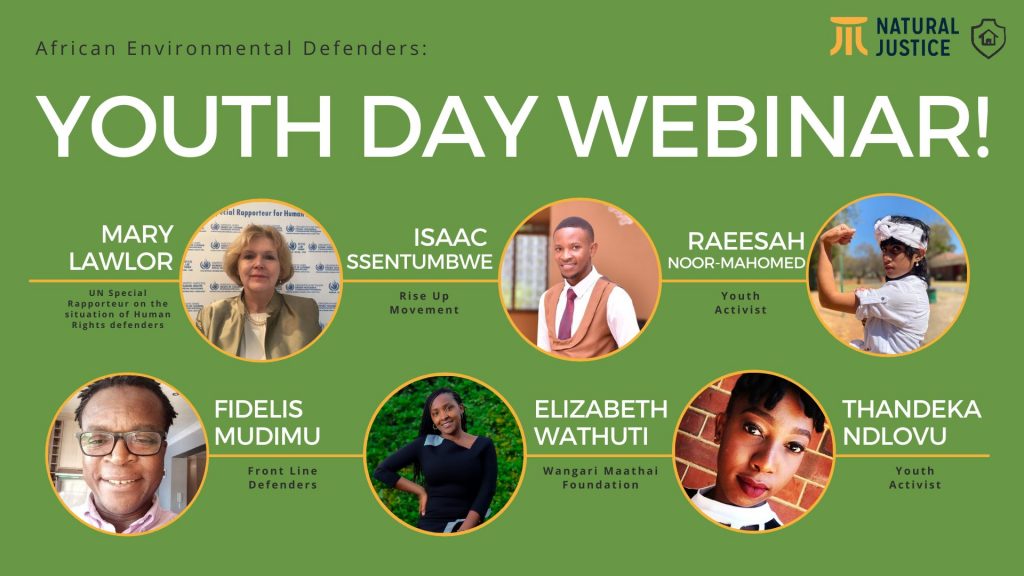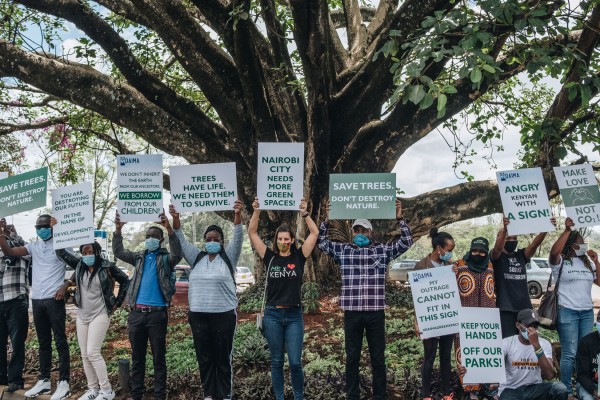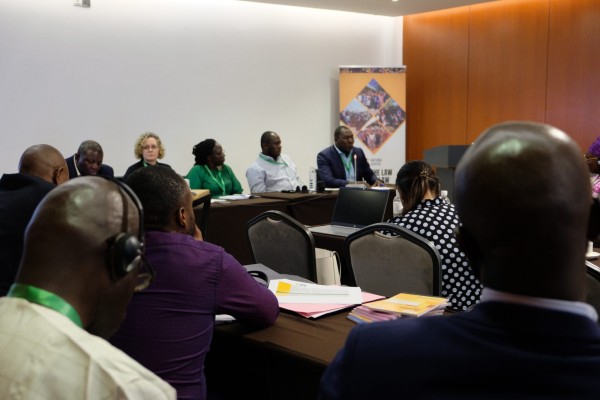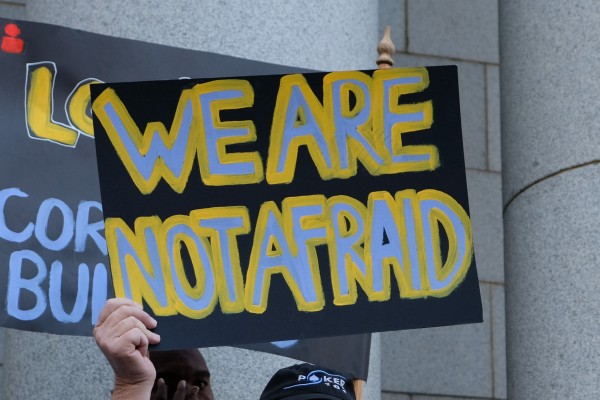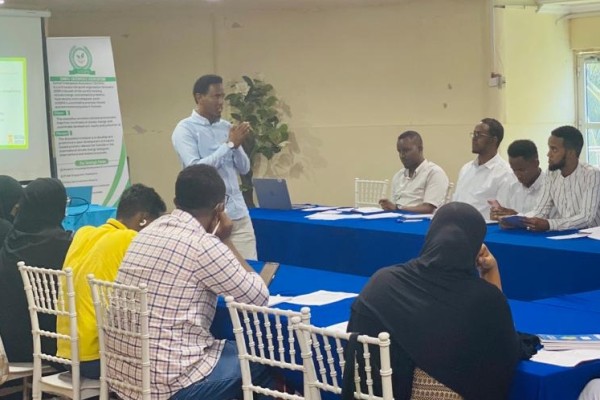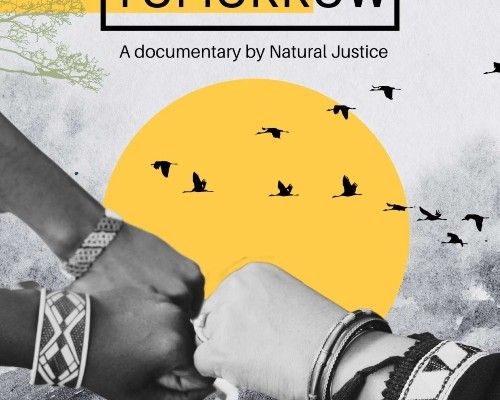Youth Day is celebrated across the globe every year on the 12th of August to raise and spread awareness about youth issues. Natural Justice took the opportunity to organize a Youth Day Webinar on that date, in partnership with several prominent organisations in Africa and globally.
The purpose of this webinar was to discuss African environmental defenders’ current situation, with an emphasis on young activists. During the event, a series of inspiring speakers of all ages and backgrounds were invited to share their experiences. Among them were: the United Nations Special Rapporteur on Human Rights Defenders, Ms. Mary Lawlor, the protection coordinator for Southern and Eastern Africa of Front Line Defenders, Fidelis Mudimu, and four inspiring youth defenders, namely Raeesah Noor-Mahomed from South Africa (19-years-old), Thandeka Ndlovu from Zimbabwe (23-years-old), Elizabeth Wathuti from Kenya (26-years-old) and Isaac Ssentumbwe from Uganda (29-years-old).
Three challenges of being a Youth Environmental Defender
During the event, the speakers opened up about the challenges and the opportunities that young environmental activists encounter.
Here are the three most striking challenges that youth environmental defenders in Africa face, according to the speakers:
First, due to the nature of their work, environmental defenders, regardless of their age, face different threats that can impede their freedom and survival, such as intimidation, harassment, evictions, arrests, and detention, as Fidelis Mudimu stated during his speech. This resonated with Isaac Ssentumbwe’s personal experience. He said that, “It’s scary to be an activist in Uganda, [there is] fear of being arrested because anyone who talks about a scorching issue, especially climate change and its subtle effect, is going to be an enemy of that state”.
Fidelis Mudimu added that the biggest threat is the killings of environmental defenders. Ms. Mary Lawlor agreed with this statement. She mentioned herself that,
“The number of such defenders being killed has climbed over the past five years all over the world but despite the gravity of the situation, it has not been met by an adequate response at the international level. In the vast majority of these cases, the perpetrators are not brought to justice and this impunity incentivizes further killings”.
This can be explained by the fact that in some countries where the civic space is restricted, people defending the environment are, a lot of the time, perceived as dissidents. For this reason, instead of being regarded as mere citizens holding their leaders accountable, they are, “Often labeled [as] anti-development agents or even people working against the government”, as Fidelis Mudimu explained.
Elisabeth Wathuti addressed this issue in her presentation:
“As environmental defenders, we are the front-liners of the ecological collapse, the climate crisis, so we also need to feel safe, we also need to be protected at the same time”. She added afterward that, “nobody should be killed or threatened for standing up for the right things”.
The second challenge that young environmental defenders have to deal with is the lack of resources for defenders to safely and effectively conduct their work.
Thandeka Ndlovu, who started a plastic-free initiative in her community in Zimbabwe, pointed out that she and other volunteers do not have adequate equipment and protective clothing allowing them to collect and recycle plastic waste safely. Isaac Ssentumbwe’ work as an activist is also severely limited because he and other defenders lack the means to reach people who are the most affected by climate change: “We reach only a few people within a reasonable proximity, yet there are a lot of people out there, especially in marginalized and remote areas, that face the stark effects of climate change to their core, to the extent of them dying, falling sick, [and] becoming victims of chronic diseases”.
The last challenge that young environmental defenders have to face on a daily basis is the poor solidarity of older generations with the younger ones. This is something that has affected Raeesah Noor-Mahomed personally, as she was urging the authorities in South Africa to act against climate change.
“My external struggles are people, especially adults, telling me that I’m too pessimistic and other adults telling me that I’m too optimistic; telling me the world is never going to change; telling me that there are too many problems; telling me that they were also hopeful when they were my age and they realized it is not worth it. And that leads to my internal struggle which is to keep fighting and sometimes it is so difficult to not give up hope”.
Three opportunities for Youth Environmental Defenders
Despite the clear challenges that young environmental defenders encounter in their work, it is also worth mentioning the opportunities to further the cause of environmental justice.
The first one is the fresh impetus brought by the youth. The new generations have shown a clear determination to bring about climate justice and to prevent a worldwide crisis. As Ms. Mary Lawlor said,
“The energy of youth is unparalleled and channeled in the right way, it can make a huge difference”.
All the young activists present at the webinar expressed their inability to remain silent while they witness the harms caused by climate change on the environment, but also on local communities in their respective countries. Knowing that many others are fighting for a better future alongside them is what keeps them motivated despite the danger and the hardship of their work.
The second opportunity brought by young defenders that deserves attention is the connection to other social issues. It has indeed become increasingly evident that climate and environmental justice cannot be achieved without gender equality and the abolition of racism. This is something that Raeesah Noor-Mahomed has understood very early in their activism.
“[they] identif[y] as an intersectional activist because [they] believe that no problem can be viewed in isolation and everything is connected”. They explained that “every single person has a voice and we want to hear every single voice” because “we cannot as a society be divided; no one can be left behind”.
Similarly, Isaac Ssentumbwe views other social issues as contributors to environmental injustices. Part of his work is notably dedicated to empowering young girls who will be unevenly affected by the climate crisis, as women and girls still have fewer rights and less decision-making power than men in his country. He said that “[his] aim is to build a generation of young women and girls who are determined, resilient, smart, mentored, and able-bodied. This is a generation which will be poised to have great change-makers in our world”.
The last opportunity for younger and older generations of activists worth mentioning is increasing support from not-for-profit organizations to assist environmental defenders in their work. For instance, Natural Justice and its partners, namely International Land Coalition, the ICCA Consortium, Pan-African Climate Justice Activists, Oxfam Novib, FEMNET, and African Youth Commission, launched the African Environmental Defenders Fund on the same day as the webinar. Previously only open to ILC-members, the fund has now expanded to any African defender on the continent. The Fund aims at providing immediate support to African environmental defenders in situations of emergency and bringing them to safety.
This event was not only insightful, but it was also extremely relevant in light of the latest report of the Intergovernmental Panel on Climate Change (IPCC) which was published earlier this week. As Ms. Mary Lawlor stated,
“After seeing the Sixth Assessment report by the IPCC this week, the work that climate and environmental activists are doing could not be more crucial for the survival of our planet”.
It should be everyone’s mission to continue to protect and sup port environmental defenders, including the young ones who keep the hope for a better future alive.
We would like to thank every single participant for joining us during this webinar, and also the moderators and speakers whose interventions were extremely valuable. Thank you to Omar Elmawi for moderating the entire session skillfully, and Irũngũ Houghton for opening the webinar with such touching remarks on the recent and tragic death of Joannah Stutchbury. Thank you to our amazing speakers as well, Ms. Mary Lawlor, Fidelis Mudimu, Raeesah Noor-Mahomed, Thandeka Ndlovu, Elizabeth Wathuti, and Isaac Ssentumbwe. It is possible to listen again to each one of the speeches here.
Partners to the event:
- Daima Green Spaces
- Wangari Maathai Foundation
- The Green Belt Movement
- Amnesty International Kenya
- Front Line Defenders
- International Land Coalition Africa
- The ICCA Consortium
- deCOALonize

